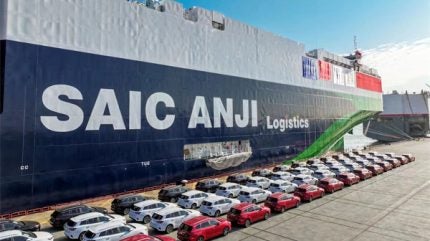
Chinese electric vehicle maker Xpeng has said planned new US import tariffs (up to 100%) for Chinese made cars are ‘detrimental’ to achieving carbon neutrality and a future transition to greener energy.

Discover B2B Marketing That Performs
Combine business intelligence and editorial excellence to reach engaged professionals across 36 leading media platforms.
According to a Reuters report, Xpeng co-President Brian Gu also said the tariffs would result in higher costs.
“This has no impact on Xpeng Motors at the moment, but for such a large market as a whole, I hope that in the future it can become more open, allowing global products to enter and compete,” he said, according to Reuters.
The report noted that Gu was speaking in Hong Kong where Xpeng has teamed up with Malaysia’s Sime Darby Motors to sell its G6 and X9 models.
Chinese vehicle makers are aggressively seeking export market opportunities in the face of an intense price war inside China.
Xpeng is also targeting Europe for more sales and there is some uncertainty on the possibility of higher import tariffs (currently set at 10% for car imports to the EU trade bloc) there in the future, pending an EU investigation into anti-competitive subsidies for Chinese automotive companies.
The Chinese OEMs have developed a competitive cost advantage in electrified vehicles as sales of NEVs have soared in China over the past two years, lowering their unit costs on key components and final vehicles. While some in regions around the world have welcomed their lower price points that potentially would encourage higher EV take-up and boost progress towards net-zero goals, others are concerned about the local economic impacts and fair-trade aspects.
See also: US hikes tariffs on Chinese BEVs






